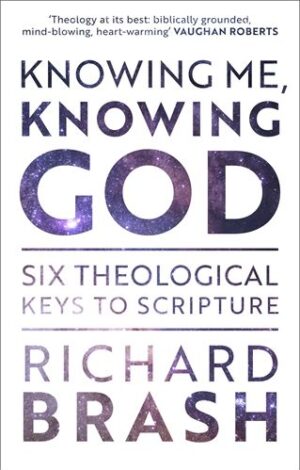Summary
With the theological key God makes himself known to us, this study focuses on the doctrine of God’s revelation. The Bible teaches that knowledge of God is not just possible, but universal: in one sense, everyone knows God. However, this universal knowledge cannot save us. For salvation, we need the knowledge of God in the gospel of Jesus Christ. But even without sin, knowing God would be a theological ‘problem’, given our status as creatures.
The Bible shows us how to understand revelation. In the Old Testament, God ‘showed himself’, ‘made himself to be seen’, and ‘made himself to be known’, particularly at times of special significance in salvation history. This revelation was both verbal and visual (in the case of theophanies and mystical visions). In the New Testament, God’s revelation is clearly both propositional and personal, and it is focused on the revelation of Jesus Christ, clothed in his gospel.
God reveals himself to us. However, we do not know God as God knows himself, archetypally. Rather, our knowledge is the ectype, or copy, of God’s knowledge. Even so, the copy is a true reflection of the original, accommodated to our created capacity and understanding.
Knowledge of God is to be found in created things. The special revelation which we receive now through Scripture opens our eyes to the revelation of God in nature and history. Knowledge of God is supremely useful for us: ultimately for our salvation in Christ. Indeed, such knowledge is the greatest blessing – even eternal life.
Aims of study
- To understand in what sense every human being knows God.
- To see how the Bible, in both Testaments, presents God’s revelation, particularly, what is revealed, how, and to whom.
- To recognise that Jesus Christ is the fulfilment and climax of God’s revelation.
- To parse the distinction (and the relationship) between God and his revelation of himself, in terms of archetypal and ectypal knowledge of God.
- To understand that God’s revelation is ‘accommodated’ to our human capacities.
- To introduce the distinction between the ‘essence’ of God and his ‘energies’.
- To understand that true knowledge of God is to be found in creatures – as revelation (both general and special) is given in the context of nature and history.
- To apply the key to our hearts, that we might seek and prize knowledge of God.
Starter questions
- The Agnostic Association of America (AAA) boasts (on their Facebook page),
WE ARE THE BEST AT KNOWING THE LEAST….and damn proud of it.
Do you have ‘agnostic’ friends or family members? Why do they say they are agnostic? Is there something positive about their position that we could affirm?
Questions to review understanding and for discussion
- What is the point of Van Til’s ‘little child’ illustration on p. 81? In what sense is there no such thing as an ‘atheist’?
- We can see from the use of the Hebrew verb niglāh that knowing God depends on God revealing himself. (p. 83) Why can’t we know God without revelation?
- In the New Testament, what are we told about the role of each Person of the Trinity in revelation? (p. 90)
- What is the distinction between ‘propositional’ and ‘personal’ revelation? How does the Bible hold these things together, particularly in Jesus? (pp. 91-93)
- Is God the same as his revelation of himself? (pp. 93-96) Why does this matter for us?
- (related to the previous question) What is the point of the distinction between archetypal and ectypal knowledge of God?
- How does God reveal himself in created things? (pp. 97-98)
Bible passage: Matthew 11:25-30
- Brash quotes this passage on p. 89 of KMKG. Compare these verses with Luke 10:21-24. In these two contexts (Matthew and Luke), what should we understand by ‘these things’? To whom has God revealed them? And from whom has he hidden them? What do these verses tell us about how the Father and the Son co-operate to reveal God?
Suggested application questions
- In what way can the biblical truth that everyone knows God help us in our evangelism and Christian witness?
- How can we (as believers) know God better? Where, in particular, should we look?
- Are there any potential dangers to be avoided as we gain this knowledge?
- What is the difference between knowing about God, on the one hand, and knowing God, on the other? How can you relate these two better in your own life?
For further study
The best account of revelation that I have found is in Herman Bavinck’s Reformed Dogmatics, vol. 1, Prolegomena (Grand Rapids: Baker, 2004), 281-494. This is not for the faint-hearted, though. Bavinck calls revelation the principium externum. This is traditional (Latin) theological terminology for the foundation of our knowledge (of God) that is outside us. In Bavinck’s theology, this external principle corresponds to (or gives rise to) an internal principle or foundation, which is our response of faith. There’s so much great stuff in Bavinck, but it takes time and effort to read and digest him.
Something a bit simpler can be found in John Frame’s The Doctrine of the Knowledge of God (Phillipsburg: P&R Publishing, 1987), which was also recommended as additional reading for the previous study.



